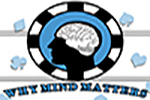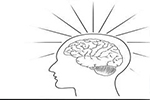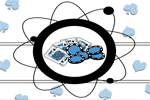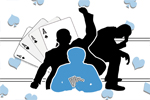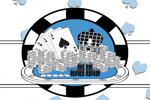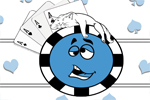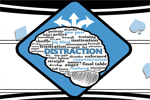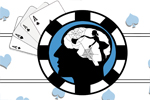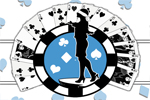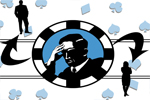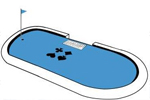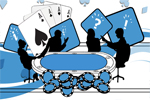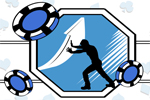Wishing for Instant Improvement
In one of the most famous scenes in the movie The Matrix, Neo downloads the ability to do Kung Fu and immediately gets into a badass fight with his mentor Morpheus. Many people enjoyed the scene for the sheer spectacle of it, but the idea that Neo could instantly download these skills is what really captured the imagination.
The scene represented a common wish that poker strategy skills could be acquired instantly, which is ironic since it took the actors months to train for the scene.
No Quick Solutions to Poker Excellence
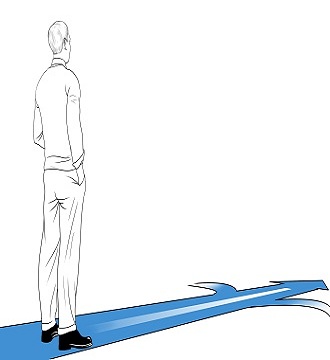
The concept of simply downloading expertise is ludicrous, but the fascination people have about the possibility highlights a commonly held flaw about the learning process. Even players who logically know it’s impossible to learn as quickly as Neo did harbor a wish that it was possible. Outwardly they’re committed to learning, but deep down they wish poker learning would happen with the click of a button. As a result, their learning process is subtly undermined and they:
- Think they can watch video poker strategy and understand it well enough to bring-in the ideas right to the table
- Lack the motivation to study as much as they should, and can’t understand why
- Learn slower
- Continually are looking for new things to learn and aren’t focused on mastery
- Frequently have big steps backwards in their game that cause a loss of motivation and confidence
What is Tilt in Poker? Recognizing & Dealing with It
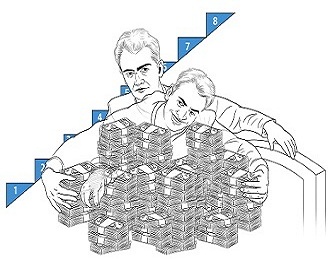
I also see this problem with my clients when they become frustrated that their mental game isn’t improving fast enough—even though there are improvements. To them, small bits of progress don’t count because the problem is still there. A common example is a player who is frustrated that their poker tilt control isn't significantly better soon after their first coaching session. Logically they know it doesn’t work that way, but they get tilted that they’re still tilting. The wish of instant improvement in poker blocks them from seeing, for example, that they recognized the signs of tilt faster, controlled it at times, and learned more about it. This is what mental game progress often looks like in the early stages. But the wish doesn’t care about progress, it only wants the problem gone.
Do You Wish to Be a Better Poker Player?
Wishing is the opposite of learning. Wishing is passive. It takes control out of your hands and undermines the focus and motivation needed to do the real work. Regardless of what a player understands logically, this wish can impact a player’s mental state because of a deeper flaw. These are the most commons ones I’ve seen:
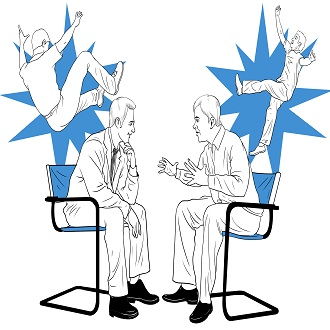
- Desire for easy improvement. It can take a lot of work, focus, sacrifice, and energy to get good at poker games. It would be cool if becoming a good player wasn’t so hard. Of course, if it was easy, it would be that way for everyone and the reward would be small. You want success to be challenging because that weeds out the people unwilling to put in the poker practice.
- Dreams feel real. Players often have dreams about how good they can become. Sometimes their visions feel so real that the mind can have a difficult time separating reality from fantasy. It can make you believe you’ve reached your dream. This problem often indicates a lack of confidence that comes from either being unsure how to achieve the dream, or how to handle failing to accomplish something so doable. With more confidence, failure is viewed as being essential to improvement and something to embrace, not avoid.
- Removes uncertainty. Poker is a complex game, and that complexity includes knowing what to learn. Players often lack a clear roadmap to follow when working on their game. Wishing takes away this uncertainty, and removes the emotional ups and downs of the learning process. If someone gave you a clear step-by-step poker strategy guide, guaranteed to turn you into the player you aspire towards, you’d follow it without a thought. It can be challenging at times to know what to focus on, so embrace it. You’re not the only one who struggles with this.
The Poker Learning Curve
The tricky part about correcting this wish is that you may wish you could correct it instantly. Whatever the reason that the wish is part of your game, here are some additional ways that you can eliminate it:
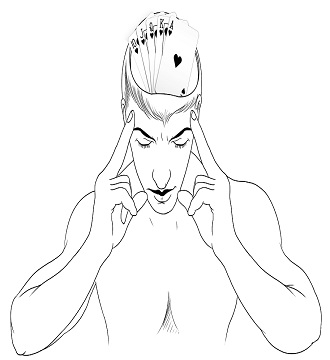
- Use the Mental Hand History to get to the heart of why you have the wish and correct the flaw.
- Be clear what you’re working on when practicing poker. If you don’t know what you should be working on focus on eliminating your worst decisions. They’re usually the most costly and basic mistakes in your game. Focusing on them will help you avoid costly errors and remove some uncertainty.
- Learn more about the learning process. I discuss several learning theories in my poker tips guide for beginner and advanced players - The Mental Game of Poker 1 and 2, so consider checking them out.
- Learn to deal with failure better by looking back at some of the goals you’ve accomplished in poker or elsewhere. Understand the steps that it took you to reach your goal, like working hard, dealing with setbacks and working through the uncertainty of what to do next. This can give you confidence that you can do it again now.
If at First You Don’t Succeed, Read & Read Again
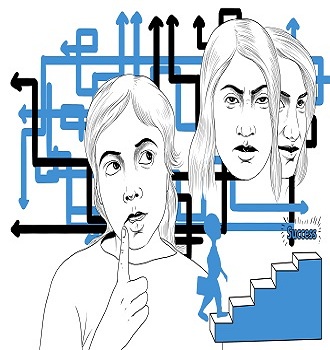
I put this chapter at the end of this poker strategy article because I wanted to make sure this hidden problem doesn’t stop you from using the suggestions I’ve given throughout this eBook. I’ve discussed a wide range of mental game topics and I suggest you focus on the one or two chapters that you think can most impact your game. And be sure to reread them. While some poker tips in Texas Hold'em may seem clear to you now, you’ll understand some of the points better after having worked at this a bit. Then once you’ve proven to have made some solid progress, pick another area to improve. Your mental game can’t be solved. It’s always a work in progress.
Jared Tendler, MS, LMHC is licensed therapist specializing in sport psychology and is the leading authority on the mental game in poker. Throughout his nearly 10 years coaching poker players he has worked with over 500 players hailing from over 45 countries, including many of the top players in the world. He is also the author of two best-selling books on the subject, The Mental Game of Poker 1 and Poker 2.

